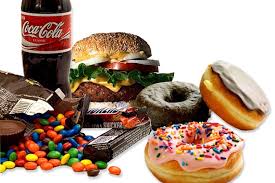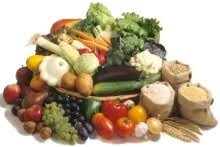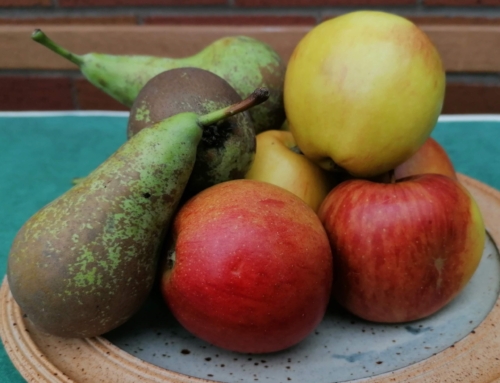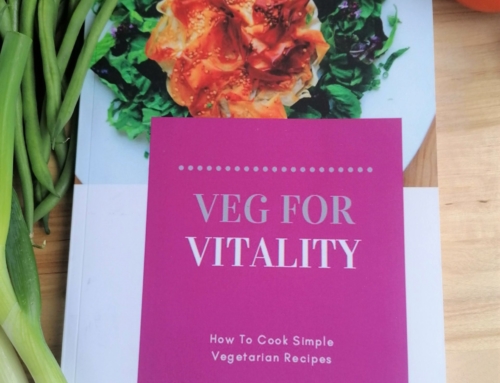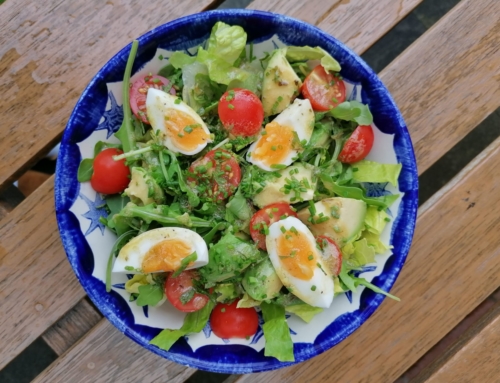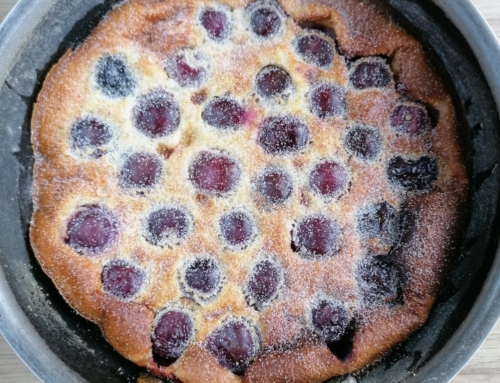Carbohydrates

Carbohydrates are mainly found in fruits, vegetables and dairy products. The only kind of food which doesn’t have carbohydrate content is meat.
There are 2 types of carbs – simple carbs, eg. sugars, and complex carbs, eg. starches.
Complex carbs do not raise blood sugar as quickly as simple carbs.
Simple sugars provide energy, but not nutrition (vitamins, minerals and fibre)
When eaten, both simple and complex carbs are converted by the body to glucose which is used for energy.
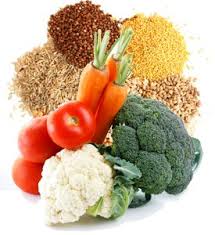
Simple sugar carbs include refined sugar, honey, syrup, candy, soft drinks and any other sweet food.
When we eat carbs, our bodies turn carbs into glucose which circulates in the bloodstream ready to be used by cells for energy.
The body releases insulin into the bloodstream which stimulates the body to turn excess glucose into fat, stored in the liver, muscles and fat cells. This is used between meals when the body needs more energy. Insulin again stimulates the body to release glucose from fat cells into the blood stream.
Phytonutrients are colourful healing compounds made by plants to protect themselves, but which also protect us against aging, obesity, brain damage and more. So, try to eat as colourful a diet as possible.
Any type of food – carbs, protein or fats, if consumed in too high a quantity, will make you fat as all of the food groups once broken down by the body, any excess is stored as fat.
Protein
The body needs about 15% protein to function adequately.
There are two types of protein : Animal protein – meat
and
vegetable protein—beans, nuts and legumes.
Protein helps to build and repair bones and muscles, skin, internal organs, blood, connective tissue, hair and nails. It also contains various antibodies, enzymes and hormones that are used by the body to carry out a multitude of bio-logical processes.
In order for the body to use protein, it needs to be broken down into amino acids by digestive enzymes. There are 9 amino acids essential for human health, animal products contain all 9 of these and most vegetables are incomplete, having just some of those 9. Quinoa and soya beans are the only plant foods to contain all essential amino acids. For an easy measure, one protein portion should be roughly the size of your palm or 0.75g of protein for every Kilo you weigh.
So on average, men should eat about 55g and women 45g protein, or 2 palm sized portions of protein per day, but with our modern diet, people eat far more than that.
Try to eat a little protein at every meal. You will feel fuller for longer, negating the need to snack in between meals—good if you’re trying to lose weight.

Excess protein is not stored in the body as protein, but as fat.
Eating large amounts of animal protein means also eating large amounts of cholesterol – leading to fat and cholesterol issues.
Excess protein puts strain on kidneys as it is hard for them to deal with the by-products of protein metabolism and increases the body’s need for water to help eliminate excess toxins.
Fats
About 30% of our daily food intake should be as fats in order to maintain the body, it’s a myth that fat is bad for you—both saturated and unsaturated fats are needed by the body.
Fats are a vital part of the human diet – when fats are metabolised by the body they form prostaglandins which among other things have a huge impact on the initiation of disease and the body’s ability to manage it. Depending on the type of fats consumed, the prostaglandins can either enhance pain and inflammation or prevent and reduce it.
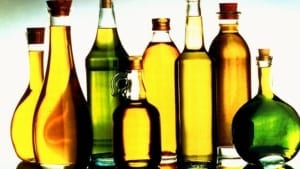
Omega 3 fats come from wild things, so are hard to find in today’ society. As well as controlling our gene function, regulating our immune system and improving our metabolism these fats are vital components of the cell membrane that covers every one of the cells in our bodies. Without omega 3 fats, proper messages can’t be communicated from one cell to another. The most important omega 3 fats are EPA and DHA. Our brains are made up of about 60% DHA. If we don’t have enough, our brains don’t work. If you’re buying omega 3 supplements, make sure the EPA and DHA percentages are high.
Over the last 150 years our diet has seen a huge change in fat intakes. The ratio of omega 6 to omega 3 fats has changed from 1:1 to 10:1 or more. Leading to all of the diseases of aging and ‘brain disorders’. In order to reverse this process we need to eat more omega 3 fats and bring the ratio back to 1:1.
Unsaturated or plant based oils tend to be unstable when heated, causing them to become toxic at high temperatures. Use cold pressed or extra virgin oils and use them as salad dressings, not as oils for cooking with. Scottish cold pressed rapeseed oil is our equivalent extra virgin olive oil, tastes delicious and is higher in omega 3 fats than olive oil.
Cholesterol is vital for communication of nervous system; it makes up all cell membranes and sex hormones, it is the glue between molecules. So, a bit of bacon or a nice piece of roast beef with a good marbling of fat is good for us in moderation—just not every-day.
The good thing about saturated fats is that they are heat stable, meaning that their chemical structure is not readily altered when used for cooking, so use a little butter or coconut oil if you need to fry or sautee anything.
Natural forms of saturated and unsaturated fats help absorption of vitamins A, D, E and K, slows down the release of sugar and optimises digestion.
Bad Fats = trans fats, which are mainly artificial fats created from unsaturated fats by heating to chemically alter them from liquids to solids. This gives them a longer shelf life, creating long lasting cheap food, but our body can’t process them easily and they have been linked to cancer, heart disease, autoimmunity and infertility. So, try to avoid ‘spreads’, butter replacements and margarines. Most margarine, butter replacements, vegetable oils, shortenings and other fat replacements will contain trans fats, a staple ingredient of manufactured pies, cakes, biscuits and general packaged food.
I’ve had a few industrial chemists come on some of my cookery courses in the past, they have all said that they would not eat margarine – you don’t want to know how it’s made!!
Use small amounts of butter and cold pressed oils such as virgin rapeseed oil, virgin olive oil, and virgin coconut oil.
Next time: Calories versus Nutrition

